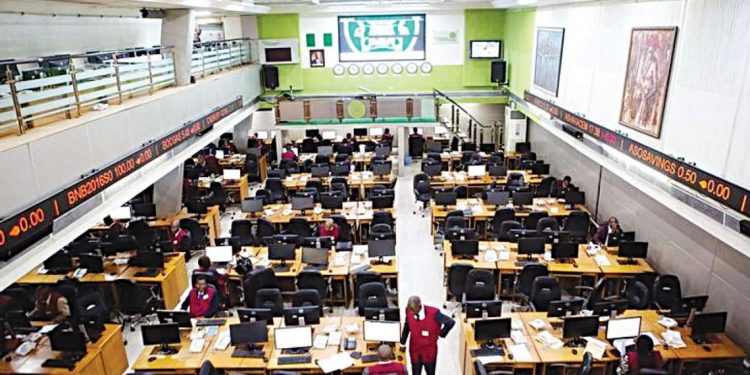In a notable downturn, the Nigerian Exchange Ltd. (NGX) experienced a decrease in market capitalization by N51 billion on Monday. The market opened at N55.861 trillion and closed at N55.810 trillion, marking a 0.09 per cent decline. The All-Share Index also dropped by 0.09 per cent or 93 points, concluding at 101,995.53, compared to Friday’s 102,088.30.
The Year-To-Date (YTD) return consequently fell to 36.41 per cent, reflecting a challenging start for investors. The market’s poor performance was primarily attributed to selloffs in key stocks of Tier-one banks, including FBN Holdings, United Bank for Africa (UBA), Zenith Bank, and Dangote Cement.
A total of 294.32 million shares valued at N6.72 billion were exchanged in 9,957 deals, indicating increased trading activity compared to the previous session. This represented a trade turnover that settled higher, with the value of transactions up by 11.69 per cent.
On the losers chart, Nestle Nigeria Plc led with a 10 per cent decline to close at N990 per share. Eterna Plc followed closely, losing 9.97 per cent to close at N15.80 per share. Other notable losers included FIDSON Healthcare Plc, CWG Plc, and Sunu Assurances, declining by 9.82 per cent, 9.56 per cent, and 9.09 per cent, respectively.
Conversely, National Salt Company of Nigeria (NASCON) led the gainers’ table with a 10 per cent increase, closing at N66. Juli Plc gained 9.83 per cent, closing at N2.57 per share. FBN Holdings appreciated by 9.68 per cent, closing at N34, while WAPIC Insurance rose by 8.96 per cent to close at 73k. Daar Communications also recorded an 8.86 per cent increase, closing at 86k per share.
On the activity chart, FBN Holdings dominated both in volume and value, trading 73.84 million shares valued at N2.42 billion. United Bank of Africa (UBA) followed closely, selling 20.67 million shares worth N493.05 million, and Zenith Bank traded 20.62 million shares valued at N731.41 million.
Despite the market challenges, the breadth closed positively with 28 gainers and 26 losers on the trader’s chart, indicating mixed sentiments among investors. The Nigerian stock market continues to be closely monitored as participants navigate through various economic factors influencing market dynamics.















